Fasting can improve hormone balance and mood, lead to mental clarity and play a role in gut repair – and much more. Dr Jocker’s shares this about fasting:
It is an ancient healing practice that dates back to the beginning of mankind, when our bodies were forced to adapt to times of famine and food scarcity on a regular basis — it STILL costs nothing to practice and could transform the health of every cell in your body!
Our ancestors once lived in a way that created robust health to help them survive the rigorous wear and tear of life. We’ve lost those life skills. Today, more and more people are struggling with their weight, chronic pain, memory loss, digestive problems, cancer, poor mental health and autoimmune diseases.
If you’re not familiar with the many benefits of fasting (and the many types of fasting) then be sure to grab a copy of The Fasting Transformation Quickstart Guide that Dr. David Jockers is giving away when you register for The Fasting Transformation Summit.
I snagged this image from The Fasting Transformation Quickstart Guide so you can see all the benefits!
Here are a few quotes from some of my favorite interviews on The Fasting Transformation Summit (which airs Jan 14 – 20)
Dr. Michelle Sands shares how fasting CAN work well in women and dispels the belief that fasting doesn’t work as well for women as it does for men. Here is one example she gives:
Intermittent fasting or a longer fast during this time period (2 weeks before menstruation) can really improve menstrual-related issues
In her interview,“Fasting for Younger Women” she covers exactly how fasting impacts female hormones – in both perimenopause and menopause – as well as precautions to consider before fasting. They also discuss why fasting is so key for gut repair (I love her pothole road analogy) and how fasting boosts the anti-aging hormone HGH (human growth hormone).
Dr. Marcelle Pick, MSN, OB-GYN, NP discusses menopause and how to reduce symptoms and optimize hormones in her interview “Intermittent Fasting for Menopausal Women.” She shares that premenopausal women and menopausal women who are
under chronic stress produce more cortisol and less DHEA and this causes imbalances in our sex hormones
Dr. Gez Agolli discusses leptin resistance and hunger, cravings and overeating in his interview “Using Fasting Strategies in the Clinical Setting” (leptin is the hormone that regulates satiety or your feeling of fullness)
If you are leptin resistant then you’ll have trouble with hunger, cravings and overeating
Interestingly leptin resistance also impacts cognitive function and increases your risk for depression. Leptin resistance also increases anxiety/depression in menopausal women.
Cheryl Burdette, ND covers inflammation and how it impacts you and the “Impact of Fasting on Chronic Inflammation.” She shares that
Eating too often and eating the wrong types of foods damages the tight junctions in the gut, and that tips the inflammatory potential.
Dr. Jockers shares this about improved mental health in his talk:
As ketones elevate in the body, most people experience improved mood, mental clarity and creativity. Many people observe that they feel the most productive at the peak of their intermittent fast or after 3-4 days of extended fasting.
I’ve personally adjusted my eating to do regular intermittent fasting and am surprised at how much it helps my mental clarity and energy levels. It also leads to much more restful sleep. I’m still recovering from the harms of EMFs and fasting helps so much!
I remember feeling a bit overwhelmed by it all and thinking it was a daunting venture (especially when I wasn’t feeling great) but I learned a lot during Dr. Jocker’s Ketogenic Summit and then did his keto program. It’s really quite easy to do once you understand how to do it well.
In case you’re curious, I’m doing what he calls a Strong Fast and consume all food (2 meals) in a 6-8 hour eating window each day and fast through breakfast. Dr. Jockers describes 16 different types of fasts in The Fasting Transformation Quickstart Guide which you get access to when you register.
Join Dr. David Jockers as he interviews fasting experts, so you can learn everything you need to know about this transformational health tactic!
Register here to learn more: Fasting Transformation Summit (it airs online from Jan 14-20, 2019)
Have you found health benefits from fasting? And have you felt challenged when fasting? Feel free to share your insights and questions in the comments below.
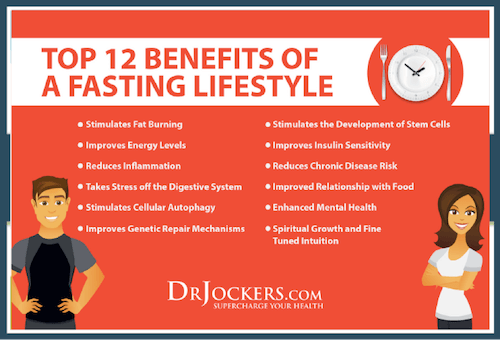
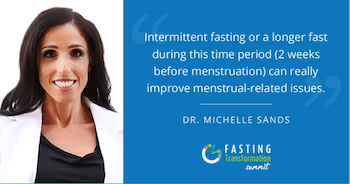
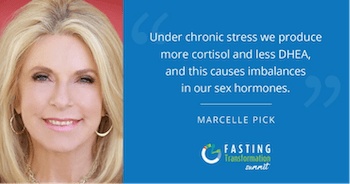
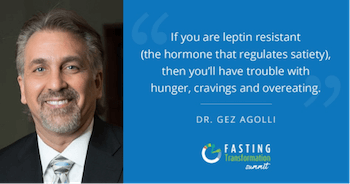
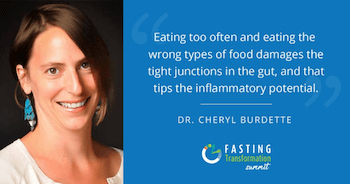
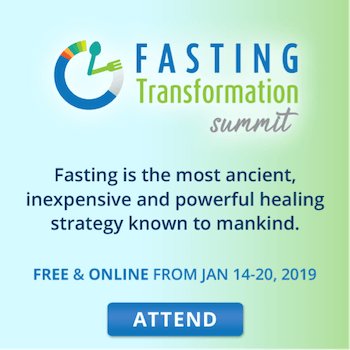
Thanks for all the great information you consistently provide. I share with others and especially women who need to know. Keep up the great health information and links.
Lois
You’re most welcome! Thanks for sharing with others! Have you been doing fasting and did you find this summit helpful?
Trudy, I’m an intermittent faster in the process of healing my body, and I’m currently reading your book. Your section on stabilizing blood sugar by eating 3 meals and 2 snacks and reactive hypoglycemia has me perplexed. Is intermittent fasting generally not recommended for people with anxiety? Or does it just depend on each individual’s experience?
Julie
Great question! There was not as much information/research on intermittent fasting when I wrote my book so it didn’t get mentioned. I’ve also been learning much about it in the last few years. For many people with anxiety addressing blood sugar stability as I describe in the book, together with healing the adrenals is key. That being said many who use intermittent fasting properly with plenty of healthy fats find that it does help with anxiety and even blood sugar stability but it’s a fine line and it’s best for them to see how they feel when starting intermittent fasting and to continue to monitor how they continue to feel and adjust as needed.
For someone with anxiety and moving from a junk food diet and/or eating only carbs at breakfast I now use a stepping stone approach – switch to real whole quality food, add breakfast with protein/fats + protein/fats each meal + healthy snacks (as per the book), address other deficiencies and start to heal the adrenals and then consider IT. I do use the amino acids at the start of this so the switch to real foods is easier and my clients get immediate relief from anxiety.
I have been practicing intermittent fasting for about ten months and have had good success with it. I am still having significant trouble with cravings though, and find myself binging during my eating window. I read the craving cure and am working my way through your archives, I don’t feel like I have a good idea of how to approach trialing when I struggle rather significantly with all four of the other types of craving-not blood sugar. (Though before I started fasting I would have said I absolutely needed to eat often to keep it steady.) How do I know if I need to keep increasing the dose for one type versus needing to go on and address another type? I also wonder about taking supplements outside of my eating window. I have trouble remembering to take them during the day (I can shut off and ignore alarms on my phone like nobody’s business) so I’ve kept my routine of taking them at bedtime. I tried cutting way back on my adrenal supplements and my body said NO WAY. I am quite frankly excited to see you combining these approaches as I feel they are both keys to my health.
Lenetta
Glad you’re having good success with IT. I have my clients do 1 amino acid at a time and find the ideal dose before adding another one. The amino acids help the cravings initially but if IT is being done correctly (not eating enough fats is a big one) I find the aminos are not needed long term.
Thank you! I went back and reread and took a ton of notes and tried trialing DLPA to start. I got to 2,000 mg (a 4th dose) and the only thing I felt was nausea from the bitterness. :/ Between frustration and a bad cold steamrolling the whole house, I haven’t yet tried another, but I plan to! The human body surely is a mysterious, miraculous thing…